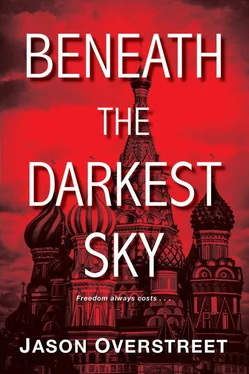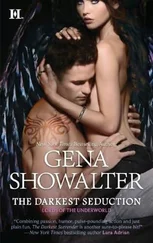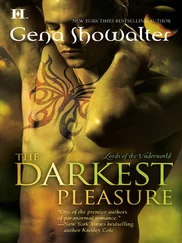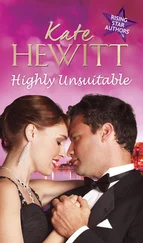“What is it?” I said, the two of us settling near the entry to the theater.
“Let me whisper somethin’ to you, Bronzeville,” he said, referring to me by the name of the town where I’d grown up. “I wanted to ask you what the embassy is saying about the death of Stalin’s first secretary in Leningrad, Sergei Kirov.”
“No one is speaking openly about it,” I whispered. “All I know is that when his death was announced on December 1st, it was hard to imagine that some random person shot him.”
“Kirov was rising in power. Stalin was certainly threatened by him.” Lovett leaned in real close to my ear. “Stalin ordered the killing. I know because my friend Karl Radek has told me as much. Radek says Stalin will try to blame the murder on the exiled Trotsky. I don’t know anything more specific, Bronzeville, but you can bet your bottom dollar it was Stalin.”
Before he could say another word, loud cheers and clapping in the lobby began. We turned to the front doorway and in walked a tall man in a long, cream-colored wool trench coat. Accompanying him was a beautiful woman, a young boy, and two handsome men. The woman was colored, but perhaps had some Spanish blood in her.
“That’s his wife,” said Lovett. “Her name is Eslanda Goode Robeson. And the boy is Paul Robeson, Jr. Pauli! The two men are her brothers, John and Frank, who actually live here, but I haven’t seen them lately.”
“LIFE IS GOOD, COMRADES!” shouted Robeson with a deep, powerful voice. It was as if these words had rained down on us from a make-believe giant, not a man.
“LIFE IS GOOD, COMRADES!” the crowd yelled back, and continued clapping for at least two minutes, as there was no bigger colored celebrity in the world than Paul Robeson.
“COME!” said Robeson, squeezing through the crowd and making his way into the theater.
I found Loretta, and we all funneled in like happy schoolchildren, each of us grabbing the first seat we could find. My friends Homer and Robert waved for Loretta and me to join them in the back row, so we gladly did, as Lovett continued on toward the stage. It wasn’t three minutes before the theater was packed to capacity. With his family sitting in the front row, Robeson took the stage and stood beside a man I recognized from the newspapers, a renowned filmmaker whose name escaped me. I hadn’t seen him enter earlier, but he was obviously here to introduce the star.
“My name is Sergei Eisenstein,” said the relatively young-looking Russian, whose English was fine. “I invited Comrade Robeson to Moscow because I want to work on a film with him. And I wanted to make sure our American comrade gets to see all of the splendid things Moscow has to offer. Last night I took him and his family to see a play by Nikolai Gogol called The Government Inspector . We are so proud of our Gogol.”
Everyone clapped and Eisenstein turned to our guest of honor.
“Did you like it, Comrade Robeson?” he continued.
The star grinned, nodded, and raised his hand, as if overjoyed by the experience he was having.
“I’m glad,” said Eisenstein. “And tonight I will be taking our guest to a Christmas Eve party at Maxim Litvinov’s house.”
Litvinov was obviously a name I recognized, as the ambassador was in a constant back-and-forth with the Soviet leader. As I held Loretta’s hand and sat back to get comfortable, I thought about how Bobby had told the ambassador that Robeson would never attend a party at the embassy. He couldn’t be seen fraternizing with the American dignitaries, but today I was learning that meeting with the likes of Litvinov wasn’t a problem. And as I’d come to understand it, Litvinov was due to attend the Spaso House celebration. Now I assumed he wouldn’t be.
“But I will not keep Comrade Robeson from you any longer,” continued Eisenstein from the stage. “Come talk to your comrades.”
Robeson stood and we all clapped again until he interrupted us with a baritone, “I FEEL LIKE I’M HOME!”
The crowd came to a hush and he continued. “For the first time in my thirty-six-year life, I feel like I’m at home. Soviet society is fantastic. And all that I’ve read about it… the good stuff… pales in comparison to what it actually is. Never has a Negro been able to walk the streets with such freedom. My wife, Eslanda, and I have never felt happier and more comfortable. I see white and colored in this audience, and you all appear the same to me… very comfortable. You know, it tickles me! I was swarmed at the train station by what seemed like a thousand Soviets. I knew they liked me, but WOW!”
The crowd laughed at him raising his long arms and making a funny face, eyes wide open, brows raised.
“I knew they loved me for my folk music here, but WOW!” he shouted through the laughter before it finally died down. “But seriously, it’s nice to see so many Americans here, some of whom I know, some who’ve been fighting the battle for Negro freedom for years. Lovett Fort-Whiteman! William Patterson! I see y’all!”
He pointed to the two who were off to the side standing, and they saluted him back. Patterson was a lawyer and member of the CPUSA who’d actually had his run-ins with Lovett. It was good to see them being civil to each another.
“I want everyone in here to listen to me clearly,” continued Robeson. “I want to thank you for taking part in the development of this great, new social order. You are here in the Soviet Union at a time when real world change is beginning to take place. The Revolution has begun to stretch its tentacles to every corner of the globe. You are pioneers. You are freedom seekers. You are proud, determined anticapitalists. And I salute you! TO MOTHER RUSSIA!”
“TO MOTHER RUSSIA!” many in the crowd yelled back, then clapped for a long spell while Robeson watched over them with a large grin.
But not everyone yelled those words. I certainly did not, as it still was a foreign land that I didn’t understand. And my friends Robert Robinson, the engineer, and Homer Smith, the journalist, both sitting to my left, felt the same way. They weren’t communists. Make no mistake, many American coloreds and whites working in the Soviet Union had by no means joined the Communist Party. And as far as coloreds specifically, most may have loved the freedom Russia offered, but they were not necessarily interested in becoming communists like Lovett or William Patterson. They were here for the good-paying jobs. In fact, according to Lovett, Paul Robeson himself hadn’t actually joined the Party.
“Robeson’s a damn big man,” said Homer, leaning into me, the audience still clapping. “He certainly looks the part of an ex-football player.”
“You got that right,” I said, leaning across Homer to tap my eyeglass-wearing engineer friend. “I didn’t hear you yell ‘To Mother Russia,’ Robert.” I smiled. “What’s wrong with you, Negro?”
“The only mother’s name I’ll ever shout out is my own,” said Robert, real proper and serious sounding, as he was a brilliant and studious toolmaker.
The clapping died down and we sat and listened to Paul Robeson for another ten minutes or so before he was whisked away to some other event Eisenstein had lined up for him. Hearing him speak with such conviction about Stalin and the Revolution had an effect on me. I couldn’t help but feel connected to all of these people. I wasn’t ready to join the CPUSA, but I was proud to be friends with men and women who wouldn’t settle for being treated as second-class citizens. These were people who saw communism as a far better option than Jim Crow.
When we arrived at Gorky Park, the Ellingtons and our twins were already there. It was a beautiful picture of white Moscow in the winter, children running everywhere throwing snowballs, adults sipping hot drinks and laughing. I was happy.
Читать дальше











